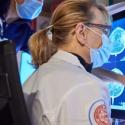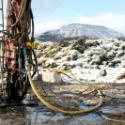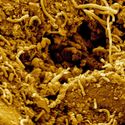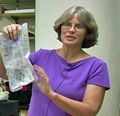Science Is Essential
Science touches so many aspects of modern life that it's hard to keep up. Through our programs and this website, Science for the Public provides up-to-date information about scientific innovations, discoveries, and issues that are shaping modern knowledge.
Coming Events
No events are scheduled for June or July
Recent Events
Space Debris Alert!: The Potential Impact on the Ozone Layer and Earth’s Climate
05/27/25 (rescheduled from April) Thousands of satellites orbit Earth. At the end of their missions, they drop into and burn up in the stratosphere, depositing ash that contains oxides and pollutants that are affecting both the ozone layer and the planet's climate. Atmospheric scientists are working to analyze the aerosols and their worrisome impact. Daniel Cziczo
The Brain-Computer-Interface Paradox
05-20-25 For individuals paralyzed by injury, stroke or ALS, brain-computer-interface (BCI) devices can enable movement and even speech. However, there are concerns: specifically, that such technology could be developed for mind control. Lukas Meier
Cancer Research: How It Works and Why It's Crucial Today
04/08/25 Numerous types of cancer are increasing today and scientists are trying to identify the causes. That's why cancer research is one of the most important concerns of modern science. We learn how the research is done and also why federal funding for this work is essential. Gerald Denis
Cosmos: Black Holes
Paradoxical objects that underscore the mystery of the universe, black holes seem the ultimate destructive force, but may be essential to the stability of galaxies...
Antimatter
Each particle has a opposite form, its anti-particle, a discovery that has had wide-ranging effects
Resistance to New Ideas
Many of the most important advances in scientific understanding were initially rejected or ignored.
Life: Synthetic Life
Partly in order to understand its amazing complexity, and partly in order to advance medical therapies. So, how do you create a viable cell?
Featured Items
Addressing the Threat to Earth System Boundaries
09/12/23 The breaching of most of the Earth system boundaries (ESBs) is destroying the planet and the crisis must be addressed immediately. Solutions must include justice for those who suffer displacement, health and economic impacts of the crisis. Diana Liverman
Analyzing Clouds and Climate Change
09/26/23 Clouds protect the planet and play an essential role in climate dynamics. How will the rapidly heating planet affect that relationship? Daniel Cziczo
Carbon Capture and Storage Will Not Reduce Global Warming
02/09/24 GBH Forum Network webinar (noon ET) The extreme level of atmospheric CO2 is well beyond a “capture and storage/sequestration” solution, yet the hype persists that some clever extraction innovation will resolve the problem. Charles Harvey
Heads Up! Surprising Stats
Science for the Public is committed to improving public knowledge of science and public appreciation for the contributions of science to social progress.

Origami: Art and Science
09/08/15 Mathematician L. Mahadevan describes how nature, science and art intersect. It will change your entire perspective.

Are We Alone in the Universe?
07/25/23 For centuries, we Earthlings have considered ourselves unique in the universe. Scientists today, however, tend to doubt our exceptionalism. But just how common might intelligent life be? Mario Livio
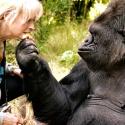
Human Language, Animal Communication
04/26/21 The evolution of the human language apparatus, comparison of human language and animal communication, and explanation of the Neanderthal language controversy. Philip Lieberman
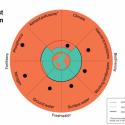
Addressing the Threat to Earth System Boundaries
09/12/23 The breaching of most of the Earth system boundaries (ESBs) is destroying the planet and the crisis must be addressed immediately. Solutions must include justice for those who suffer displacement, health and economic impacts of the crisis. Diana Liverman

Space Debris Alert!: The Potential Impact on the Ozone Layer and Earth’s Climate
05/27/25 (rescheduled from April) Thousands of satellites orbit Earth. At the end of their missions, they drop into and burn up in the stratosphere, depositing ash that contains oxides and pollutants that are affecting both the ozone layer and the planet's climate. Atmospheric scientists are working to analyze the aerosols and their worrisome impact. Daniel Cziczo
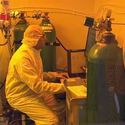
Nanotechnology in Medicine
04/20/17 A tour of some innovative medical nano-devices at the Tufts University Nano Lab. Sameer Sonkusale
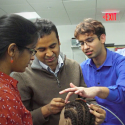
A Wearable Brain-Stimulation Device
03/22/21 Designing a wearable device to study brain function and dysfunction, with a goal of precise therapeutic interventions to treat neurodegenerative diseases Shawn Kelly

The Great Potential of Offshore WInd Farms
05/07/19 How effective are offshore wind farms in nations that have developed them, and why has the US been especially slow to adapt such an important energy resource?
Andrew Myers
Today's Featured Contributors
Featured Guest
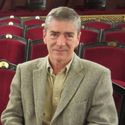
Ciprian Borcea, Ph.D.
A mathematician who investigates how geometry determines the limits of structures and motion.
As a world society, it seems clear that we have arrived at a point in our history when there must be a major increase in the capability of ordinary people to cope with the scientific and technological culture that is shaping their lives and the lives of their children.
—Leon Lederman, Nobel Laureate in physics



